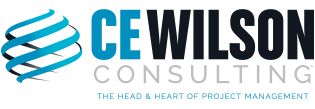Effective project managers draw on a wide range of education and experience to get the…
7 Smart Tips For Effective Time Tracking
There’s no getting around this fact: Successful project management involves utilizing an accurate and efficient system for tracking time spent on project related tasks. Benefits of effective time tracking include:
► Understanding of the effort expended per task
► Usefulness as a planning tool for staff allocation
► Better handle on billing
► More accurate view into the status of the project (e.g. remaining effort in hours)
► Collect data needed for project metrics such as Schedule Performance Index (SPI) & Cost Performance Index (CPI)
► Boost efficiency and productivity
► Quick access to time tracking information via reporting tools. Quick access will save time when you, your client, or team members have questions related to project time.
If you aren’t utilizing a time tracking system effectively, read on.
Here are 7 ways to ensure your time tracking system is effective:
1. Always set the tone for a culture of consistent time tracking in your organization. No tool or process will truly work unless your team buys into the process. You can create this culture by reinforcing the reasons tracking is important and enhances productivity. In addition to explaining the benefits, set clear expectations for how time is to be tracked.
2. Use an online software solution if you’re currently tracking time manually. Software as a Service (SaaS) time tracking software is now the industry standard and offers tremendous efficiency and flexibility options. Key features to look for are an intuitive design, the ability to generate meaningful reports easily and the availability of reports in .pdf, HTML and Excel formats for e-mail convenience. The reports feature will be very valuable if a client asks to see a report of time spent. The ability to quickly respond to client requests builds trust.
3. Create a simple process to audit timesheets. Try to automate this process to the greatest extent possible. You need to have comfort in the accuracy of your data so having a process to ensure and validate accuracy is important.
4. The KISS rule (Keep It Simple Stupid) is paramount. Your consultants should not have to spend a lot of valuable time tracking their time. The process for tracking should be simple, easy and almost effortless. I was once on a project where time tracking was an extensive and overly-elaborate process. When the process is overly cumbersome or complex, find a way to either streamline the process or offer support for the time submitters in the way of training guides, on-line tutorial, or a person on-site who can walk them through it once. If you have a Project Management Office (PMO), contact them for their input on best practices for time tracking.
5. Give staff the flexibility to track time in multiple ways. If this is possible for you, your team will love you and be more inclined to track their time consistently. Remember, emergencies do happen that makes it difficult for people to access a tool and submit time (e.g. medical emergency, snowed-in flight, network issues). Plan alternatives for emergency situations like this. For example, allow the resource to assign an approved ‘delegate’ to enter time on their behalf.
6. Distinguish project work from non-project or overhead tasks when tracking time. Also, create different categories of time. Tracking time by the categories is imperative when billing different rates for different types of tasks. It also helps in understanding the time spent on project-related tasks versus administrative tasks or support-related tasks.
7. Understand the limitations of software and have a plan to address these limitations. For example the ability to track time off line and the one-size-fits all nature of software are possible limitations. Understand the limitations and plan for alternate options so that your time tracking process is not derailed.
If you are new to time tracking, start with a small solution first. Free or less expensive software tools can be helpful. Once you have a clear understanding of your needs and can justify the investment from a cost/benefit perspective, advance to a more sophisticated tool. You can check out our Trends In Project Management Technology post for ideas on more advanced project tracking tools.
What effective time tracking strategies have been most beneficial for you?
Chrystal Richardson is Managing Partner of CE Wilson Consulting, a project management and business efficiency consulting firm that has managed projects for technology, mining, medical and manufacturing clients since 2001. She authors the ‘Project Management DNA’ blog.




